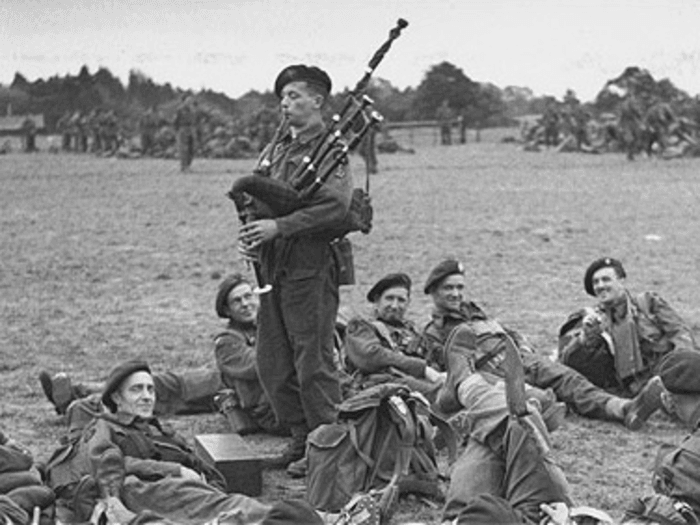by Giles Milton
Who was Shimi Lovat? And how did a flamboyant Scottish aristocrat come to be head of the British commandos? Turns out that patrician charm goes a long way when it comes to leading an attack on the Nazis.

Welcome to Season 3 of Unknown History: D-Day Stories. I’m your host, Giles Milton, and today we’re talking about the extraordinary beach assault led by Lord Lovat and his band of British commandos.
Like the American Rangers we learned about in an earlier episode, the British commandos were the elite of the elite—a highly trained group of soldiers who were to land on Sword Beach, the most easterly of the five landing beaches in Normandy.
They were under the leadership of Simon Fraser, the 15th Lord Lovat, a flamboyant Scottish chief with a patrician charm and an unbreakable spirit. One of his friends described him as having “indefinable star quality.”
Only Lord Lovat would have the swagger to go into battle with a Highland bagpiper at his side. And surely only he would wear a monogrammed shirt under his battledress. He was known to his friends as Shimi Lovat—an anglicized version of his traditional Gaelic name.
Just 33 years of age, Lord Lovat had the wind-blown air of an Elizabethan pirate-adventurer. Appointed commander of the 1st Special Service Brigade—the commandos—he had vowed to create the finest unit ever to go into battle. In common with other front-line leaders, Lovat knew that only the best prepared men would pull through D-Day. To this end, he trained them halfway to death, with enforced marches and full-scale practice assaults on the coastline of southern England.
His men referred to him as “The Mad Bastard,” a term of endearment. They admired his flamboyance just as they loved his swaggering confidence. Lord Lovat was a showman and D-Day was to be his greatest act.
To learn more about Lovat and his bagpipes, visit the Unknown History Channel on QuickandDirtyTips.com. You can also listen to the entire episode with the player below.

Giles Milton is a writer and journalist. He has contributed articles to most of the British national newspapers as well as many foreign publications, and specializes in the history of travel and exploration. In the course of his researches, he has traveled extensively in Europe, North Africa, the Middle East, and the Americas. He has written four previous books of nonfiction, including the bestselling Nathaniel’s Nutmeg, and has been translated into fifteen languages worldwide. Edward Trencom’s Nose is his first novel.
